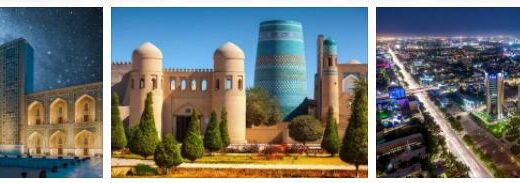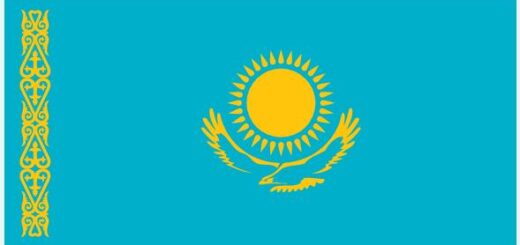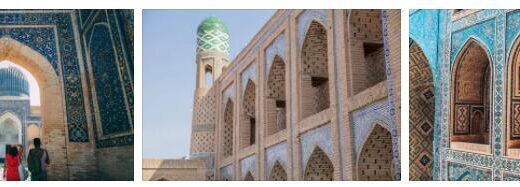State Structure and Political System of Uzbekistan
Uzbekistan is a sovereign democratic republic, the form of government is presidential. The Constitution of 1992 is in force (as amended in 1993, April 2003). Check equzhou for political system of Uzbekistan.
The Republic of Uzbekistan includes the Republic of Karakalpakstan, 12 oblasts (Andijan, Bukhara, Jizzakh, Kashkadarya, Novoi, Namangan, Samarkand, Surkhandarya, Syrdarya, Tashkent, Fergana, Vermont, Khorez).. Tashkent is a city of republican subjugation, 113 pp., 1461 rural settlements.
Largest cities: Tashkent, Samarkand, Namangan, Andijan, Bukhara, Nukus. The system of state power is based on the principle of separation of powers into legislative, executive and judicial.
The highest representative body exercising legislative power is the unicameral Oliy Majlis (parliament), consisting of 250 deputies. During the 2002 referendum, a decision was made to transform the Oliy Majlis of the next convocation (2004) into a bicameral one. Deputies of the Oliy Majlis are elected by territorial constituencies on a multi-party basis for a term of 5 years. Chairman of the Oliy Majlis (as of March 2003) – E. Khalolov.
The highest body of executive power is the cabinet of ministers. The Cabinet of Ministers consists of the Prime Minister, First Deputy Prime Minister, ministers, heads of agencies and committees. The composition of the Cabinet is formed by the President and approved by the Oliy Majlis. Prime Minister of Uzbekistan – Sh. Mirziyaev (since the end of 2003). Check homeagerly for democracy and human rights of Uzbekistan.
The President of Uzbekistan is the head of state and executive power in the republic and, until recently, was simultaneously the chairman of the cabinet of ministers (in April 2003 this provision was removed from the Constitution of Uzbekistan). The President is elected by the citizens of Uzbekistan on the basis of universal, equal and direct suffrage by secret ballot, for a term of 5 years. The same person cannot be president for more than 2 terms in a row. The President acts as a guarantor of the rights and freedoms of citizens, the Constitution and laws of Uzbekistan, the sovereignty, security and territorial integrity of the state.
The current president I.A. Karimov (b. 1938) was elected president at the Supreme Council session in March 1990, he again became president as a result of popular elections in 1991. A popular referendum in 1995 extended Karimov’s presidential powers until 2000. In the 2000 elections, he again won a landslide victory. As a result of a popular referendum in January 2002, the constitutional term of office of the president was changed from five years to seven years.
President Karimov developed 5 key principles of the transitional policy, which formed the basis of the Uzbek model of economic reforms: de-ideologization of the economy, the priority of the economy over politics; the state is the main reformer; the rule of law in all areas of life; strong social policy; gradual, gradual transition to a market economy.
The representative bodies of power in the region, districts and cities are the Councils of People’s Deputies, headed by khokims. The term of office of the Councils of People’s Deputies, elected by the population on the basis of universal, equal and direct suffrage by secret ballot, and khokims is 5 years.
At the same time, khokims head the executive power in the respective territory. Khokims of regions and the city of Tashkent are appointed and dismissed by the president and approved by the relevant Councils of People’s Deputies, khokims of districts and cities – by the khokim of the corresponding region and approved by the relevant Council of People’s Deputies. Self-government bodies in settlements, kishlaks and auls, in mahallas of cities, towns, kishlaks and auls are citizens’ gatherings that elect a chairman (aksakal) and his advisers for 2.5 years.
More than 250 public organizations, parties and movements operate in Uzbekistan. It is prohibited to create parties aimed at the violent overthrow of the constitutional order, opposing the sovereignty, integrity and security of the country, the constitutional rights and freedoms of citizens, propagandizing war, social, national, racial and religious hatred, infringing on the health and morality of the people, formed according to national and religious signs.
On horseback In 2002, 4 parties officially operated: the People’s Democratic Party of Uzbekistan (PDPU), which is the successor to the Communist Party of Uzbekistan, has more than 520 thousand members; social democratic party “Adolat” (“Justice”), more than 30 thousand members; Milliy Tiklanish (National Revival) Democratic Party, ca. 10,000 members, mostly intellectuals; the national democratic party “Fidokorlar” (“Selfless”), whose members (more than 45 thousand people) are mainly entrepreneurs, intellectuals, and youth.
There is also a large socio-political movement “Halk Birligi”, which sets as its main task the rallying of representatives of all social strata, nations and nationalities in building a democratic legal state, civil society.
These parties and movements are pro-government and support the president. Opposition political parties and organizations have not been registered with the Ministry of Justice. Of the illegal parties, the most notable is the democratic party “Erk” (“Will”), which until 1997 played the role of the official opposition; religious extremist Islamic Movement of Uzbekistan (IMU), Hizb-ut-Tahrir al-Islomi party.
Of the other public structures, trade unions, youth organizations, various foundations are the most active: the Commissioner of the Oliy Majlis for Human Rights, the Mahalla Charitable Foundation, the President’s Umid Foundation to support the education of gifted youth abroad, etc. Leading organizations of business circles: Chamber of Commodity Producers and Entrepreneurs, Association of Dekhkan and Farmers, Tashkent Business Club, Association of Business Women.
Domestic policy is aimed at creating the foundations of a civil society and a democratic rule of law that protects the most important rights and freedoms of citizens. One of the priority domestic political tasks is to ensure civil peace, interethnic and interfaith harmony. A course has been taken towards the liberalization of all aspects of the life of society, which is manifested in the partial transfer of state functions to non-governmental organizations and local self-government bodies.
Uzbekistan is a full-fledged subject of international relations. Its foreign policy proceeds from the principles of the sovereign equality of states, the non-use of force or the threat of force, non-interference in the internal affairs of other states, and other generally recognized principles and norms of international law.
The Armed Forces of Uzbekistan consist of the Ground Forces, Air Force, Air Defense, National Guard, Security Forces (internal security forces and border troops). The draft age is 18 years. In 2003, the military reform was completed, aimed at improving the efficiency of command and control of troops and creating our own personnel training system for the Armed Forces. Service life is 1 year, for students – 9 months. It is provided for the passage of alternative service for religious reasons (a period of 2 years), as well as service as reservists, provided that the conscript pays an amount equivalent to 25 minimum wages to a special bank account of the Ministry of Defense. Military spending is approximately 2.5% of GNP (1997).
Diplomatic relations with the Russian Federation were established on March 20, 1992.



